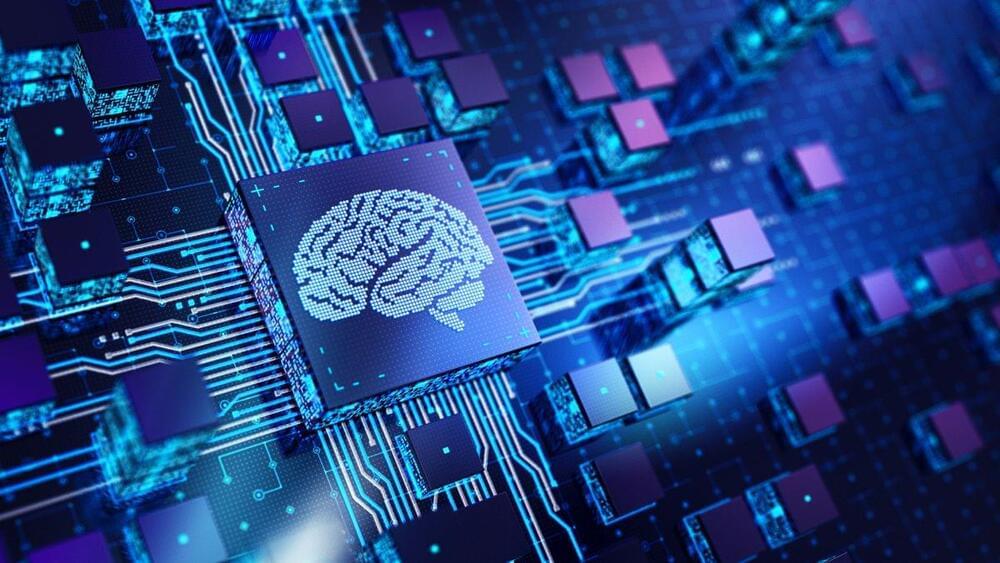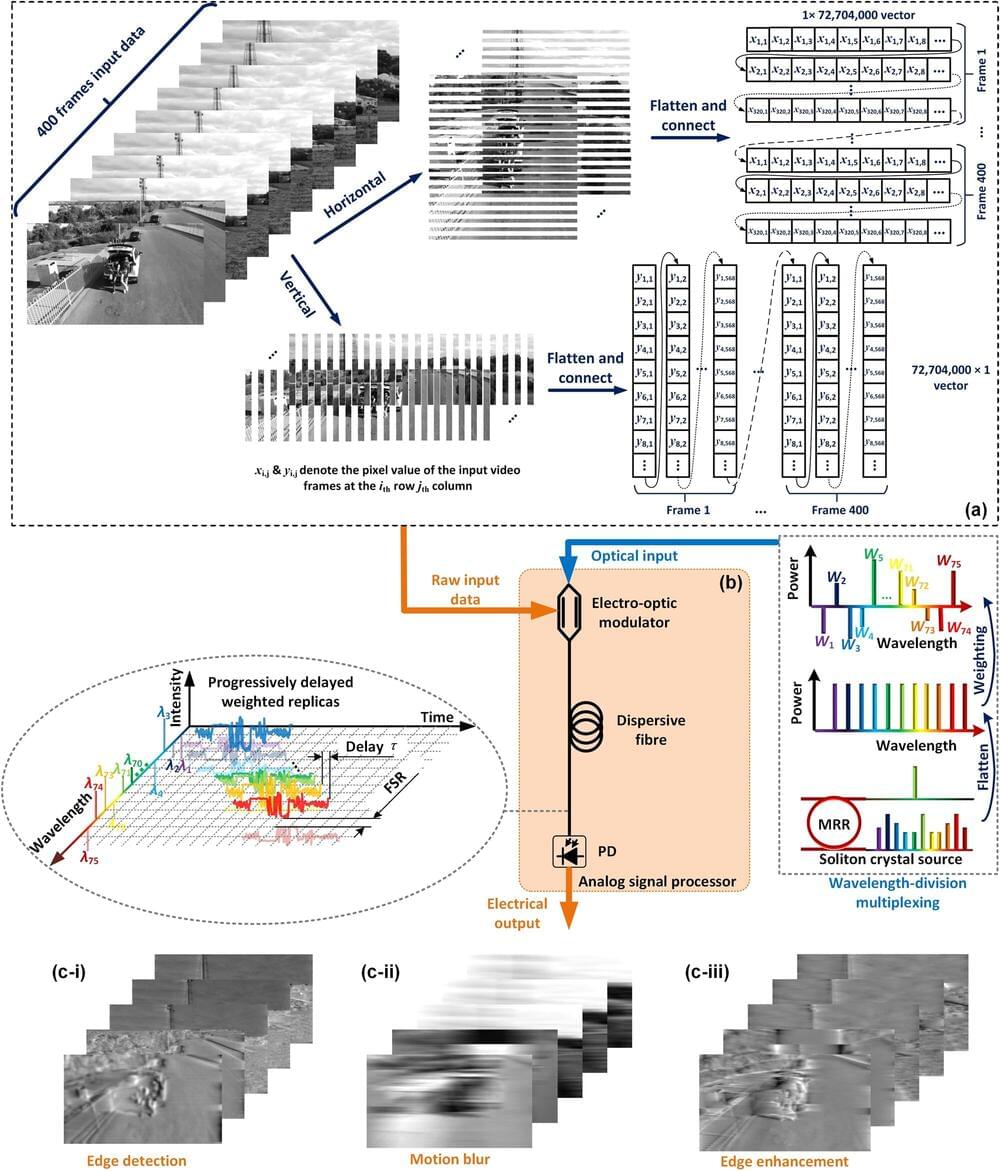Data scientists in Denmark claim they’ve devised an AI model that can predict when someone is going to die.


A game-changer in prosthetics has been introduced to the world, and for the first time, amputees are regaining sensation through an electrical signal from their prosthetic arm. Max Ortiz-Catalan, a professor of bionics, explains the process of implanting these mind-controlled bionic arms through direct skeletal attachment. The researcher takes us through every step of this groundbreaking advancement in bionic medicine, from surgically implanting electrodes to fitting the prosthesis and training for everyday use.\r\
\r\
Director: Lisandro Perez-Rey\r\
Editor: Jordan Calig\r\
Expert: Prof. Max Ortiz Catalan\r\
Line Producer: Joseph Buscemi\r\
Associate Producer: Kameryn Hamilton\r\
Production Manager: D. Eric Martinez\r\
Production Coordinator: Fernando Davila\r\
Post Production Supervisor: Alexa Deutsch\r\
Post Production Coordinator: Ian Bryant\r\
Supervising Editor: Doug Larsen\r\
Assistant Editor: Justin Symonds\
\
Still haven’t subscribed to WIRED on YouTube? ►► http://wrd.cm/15fP7B7 \r\
Listen to the Get WIRED podcast ►► https://link.chtbl.com/wired-ytc-desc\r\
Want more WIRED? Get the magazine ►► https://subscribe.wired.com/subscribe…\r\
\r\
Follow WIRED:\r\
Instagram ►► / wired \r\
Twitter ►► / wired \r\
Facebook ►► / wired \r\
Tik Tok ►► / wired \r\
\r\
Get more incredible stories on science and tech with our daily newsletter: https://wrd.cm/DailyYT\r\
\r\
Also, check out the free WIRED channel on Roku, Apple TV, Amazon Fire TV, and Android TV. \r\
\r\
ABOUT WIRED\r\
WIRED is where tomorrow is realized. Through thought-provoking stories and videos, WIRED explores the future of business, innovation, and culture.
Like China, the US sees AI as a key to both a military and economic power in the 21st century. Both Republicans and Democrats in DC are concerned about the rate of Chinese advancement. In fact, the running joke on Capitol Hill is that the only thing they can agree on is The Chinese Threat.
Toward this end, Congress recently passed The CHIPS Act and the Executive Branch has been implementing trade controls to deny technology that they believe are critical for developing AI in China. While this desire is rational, it is unlikely to work in the mid-to long-term, and it will only increase geopolitical tension.
The US strategy of technology relies on seven realities that, while true today, are unlikely to all be true tomorrow.

Scientists have designed a transistor that stores and processes information like the human brain and can perform cognitive tasks that most artificial intelligence (AI) systems today struggle with.
This technology, known as a “synaptic transistor,” mimics the architecture of the human brain — in which the processing power and memory are fully integrated and found in the same place. This differs from conventional computing architecture, in which the processor and memory are physically separate components.

Scientists have now leveraged deep learning to discover a new class of compounds that can kill a drug-resistant bacterium.
Using deep learning models, scientists have identified a new class of antibiotic compounds that can work against resistant strains like MRSA.

Abstract Here we represent human lives in a way that shares structural similarity to language, and we exploit this similarity to adapt natural language processing techniques to examine the evolution and predictability of human lives based on detailed event sequences.
Using registry data from Denmark, Lehmann et al. create individual-level trajectories of events related to health, education, occupation, income and address, and also apply transformer models to build rich embeddings of life-events and to predict outcomes ranging from time of death to personality.
The events of 2023 showed that A.I. doesn’t need to be that good in order to do damage.

A team of international scientists have developed an ultra-high speed signal processor that can analyze 400,000 real time video images concurrently, according to a paper published in Communications Engineering.
The team, led by Swinburne University of Technology’s Professor David Moss, have developed a processor that operates more than 10,000 times faster than typical electronic processors that operate in Gigabyte/s, at a record 17 Terabits/s (trillion bits per second).
The technology has profound implications for the safety and efficiency of driverless cars, medical imaging and could help find habitable planets beyond our solar system.

On the pursuit for anyons (Majoranas) in the context of the latest progress on multiple platforms.
Already, the graphene efforts have offered “a breath of fresh air” to the community, Alicea says. “It’s one of the most promising avenues that I’ve seen in a while.” Since leaving Microsoft, Zaletel has shifted his focus to graphene. “It’s clear that this is just where you should do it now,” he says.
But not everyone believes they will have enough control over the free-moving quasiparticles in the graphene system to scale up to an array of qubits—or that they can create big enough gaps to keep out intruders. Manipulating the quarter-charge quasiparticles in graphene is much more complicated than moving the Majoranas at the ends of nanowires, Kouwenhoven says. “It’s super interesting for physics, but for a quantum computer I don’t see it.”
Just across the parking lot from Station Q’s new office, a third kind of Majorana hunt is underway. In an unassuming black building branded Google AI Quantum, past the company rock-climbing wall and surfboard rack, a dozen or so proto–quantum computers dangle from workstations, hidden inside their chandelier-like cooling systems. Their chips contain arrays of dozens of qubits based on a more conventional technology: tiny loops of superconducting wires through which current oscillates between two electrical states. These qubits, like other standard approaches, are beset with errors, but Google researchers are hoping they can marry the Majorana’s innate error protection to their quantum chip.